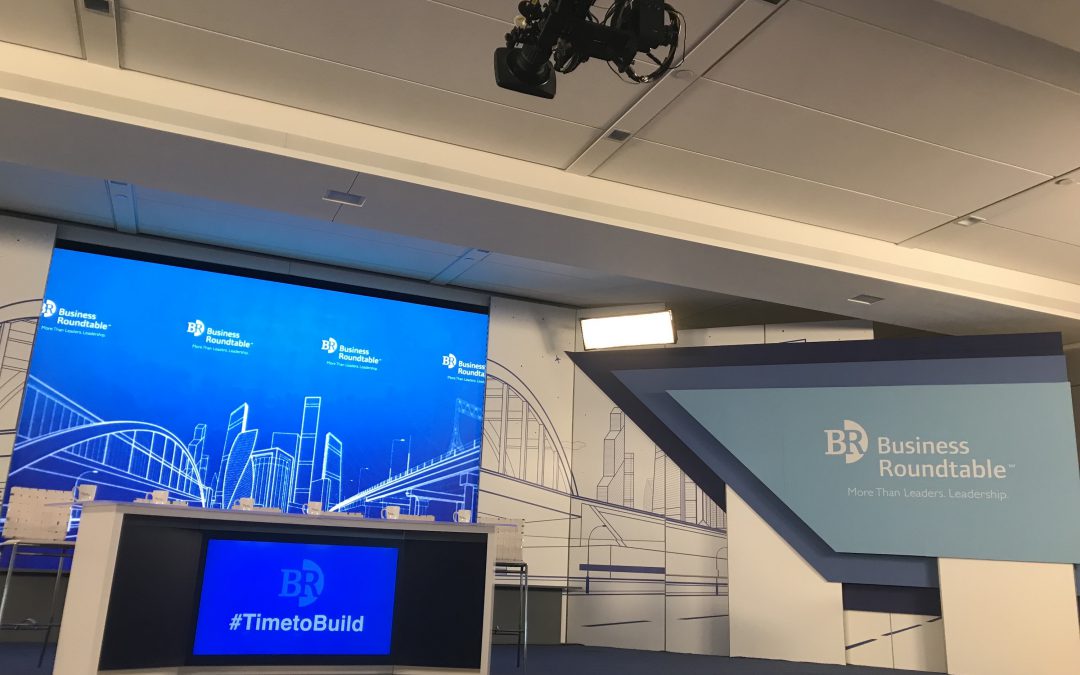WASHINGTON – America’s “antiquated” roads, bridges, aviation system, and rail lines suffer from funding and legislative “inertia,” business leaders and members of Congress declared during an Infrastructure Week event.
At a moderated discussion Thursday at the Business Roundtable, speakers highlighted the stagnation of U.S. infrastructure, which was recently given a D-plus rating by the American Society of Civil Engineers in its latest Infrastructure Report Card. The report, issued by ASCE every four years, noted a $2.0 trillion, 10-year investment gap.
“Crucial investments in infrastructure have waned, we rank well behind our biggest developed country competitors, and our antiquated infrastructure is a problem compounding every year,” said Joshua Bolten, the president and CEO of Business Roundtable, and a former chief of staff to President George W. Bush.
Rep. Rodney Davis (R-Ill.) blamed the current political system for the lack of progress in fixing America’s infrastructure, saying it is “a partisan problem” that can’t be fixed in the current “polarized” political environment.
“It doesn’t matter what plan we put in place, if we challenge one federal dollar, it’s too much,” said Davis, who serves on the House Committee on Transportation and Infrastructure.
Davis was referring to the grief Republicans feel when they question the allotment of federal spending.
“How do we get enough members that are going to be willing to vote to work together to make these agencies work better to get the funds out?” he asked rhetorically.
Sen. Tom Carper (D-Del.), the ranking member on the Senate Committee on Environment and Public Works committee, and Sen. John Barrasso (R-Wyo.) have introduced America’s Water Infrastructure Act. The bill aims to update aging water infrastructure and provides reauthorization for the budget of the Army Corps of Engineers.
Despite Davis’ skepticism, Carper said the bill had “unanimous bipartisan support” and he hopes that the Trump administration will use it as a legislative vehicle for an infrastructure spending initiative, which the president initially championed in his sixth week in office during a joint address to Congress.
White House press secretary Sarah Sanders said last week the White House isn’t planning to champion any specific infrastructure legislation this year.
Jamie Dimon, chairman and CEO of JPMorgan Chase & Co. JPM, -0.11% echoed the optimism of Carper, saying the infrastructure problem has “nothing to do with Democrats and Republicans” and highlighted the need to “fix” the current permitting system immediately.
“It takes 9.7 years on average to get permits to build a bridge, which triples the cost and disincentives investors,” Dimon said as an example of bureaucratic delays that he maintains hinder development. “The U.S. has 10% of bridges that are in the same state as the one in Minnesota and it costs more money not to fix them than to fix,” said Dimon, who also blamed funding and financing as a “big part” in disincentivizing investors.
The latest bridge collapse in Minnesota was in 2007, when the Interstate 35W bridge collapsed and killed 13 people.
He said Americans are “entitled to know the maintenance of these bridges.”
“Bad infrastructure is bad for everyone and it’s going damage us and continue hurting us more and more over the years,” said Dimon. “It’s getting worse, not better.”


